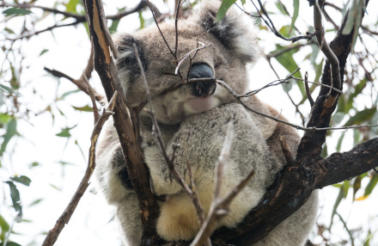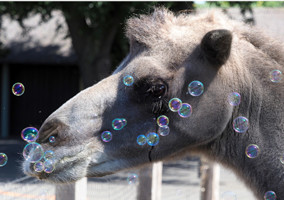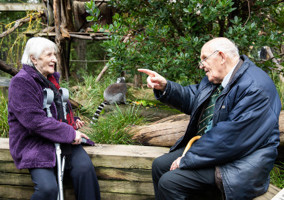Zoos and aquariums are at risk of permanent closure, and have urged the government to relax “prohibitive barriers” that are preventing them from accessing support.
In June, the Department for the Environment, Food and Rural Affairs (Defra) opened a £100m fund to support zoos and aquariums struggling with the impact of coronavirus on their activity. Organisations are invited to apply for an animal welfare grant of up to £730,000.
However, organisations initially needed to be down to just six weeks of reserves in order to be eligible for support.
Defra subsequently loosened the the restrictions in August in order to support organisations that are down to 12 weeks’ reserves, and said zoos and aquariums can apply in advance of reaching this point so that support is in place when they need it. However, so far the fund has still only received 12 applications.
Many zoos reopened over the summer but restrictions mean that visitor numbers are lower than would have been the case without the pandemic.
The British and Irish Association of Zoos and Aquariums (BIAZA) is calling on the government to removed “prohibitive barriers” to government funding, ongoing support through 2021, extension of business rates relief into 2021, and an increase in Gift Aid from 20% to 25% for two tax years.
Nicky Needham, acting joint director of BIAZA, said: “Without further intervention we will likely lose a number of our world-class zoos and aquariums before the next summer visitor period, and see their vital conservation and education work end. The action so far has been welcome but it is not enough to save our zoos.”
Bristol Zoo: ‘Dire financial position’
The Bristol Zoological Society is one of those that says it cannot access funding.
In a message to supporters, Justin Morris, chief executive, said: “The Society continues to be unable to take advantage of the government’s Zoo Animals Fund, due to the financial reserves that we had in place as a registered charity. Our fixed costs are high and the expense of caring for our animals is considerable. We continue to run our conservation breeding programmes as well as our conservation field projects across four continents.
“Facing a multi-million-pound loss both this year and next, puts us in a dire financial position. Our future is at risk and we urgently need your help, now more so than ever before.”
Chester Zoo: ‘We face a £5m shortfall’
Chester Zoo is another organisation facing financial difficulty but struggling to access the government support.
It is currently operating at about half its capacity to enable social distancing and faces a £5m shortfall due to Covid-19.
In an update on its website for supporters it said that its fundraising appeal had raised over £3m via a JustGiving page.
It said: “We’re determined to find ways to cut our costs and make good decisions that will lead to a return to financial health but for now our plans are on hold and we are vulnerable to the real possibility that further coronavirus restrictions will impact our finances yet again.”
Defra: ‘We have made it easier access’
A government spokesperson said: “We understand the challenges zoos have been facing due to the coronavirus pandemic and have set up a specialist fund to ensure zoos facing severe financial difficulties can continue to provide the best possible care for their animals.
“We recently expanded eligibility criteria for this funding, and have made it easier for zoos to plan ahead by encouraging them to apply for support well in advance of running into financial difficulties.”
The applications of the 12 organisations that have so far applied are currently being assessed. The deadline for applications is 16 November.
Earlier this year 46 organisations received a share of a £14m Defra fund to assist them at the beginning of the crisis.
Related articles











